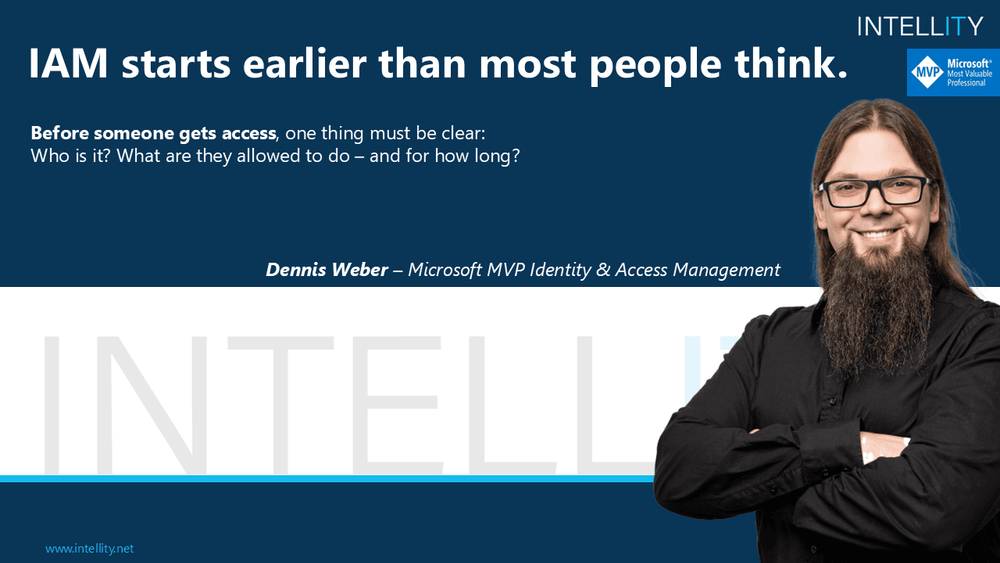IAM Use Case: Onboarding – The underestimated starting point for security, efficiency and trust in the user lifecycle
Dennis Weber >> 17 April 2025

Why the first step counts
Before a person in the company is granted access to systems, data, or applications, key questions must be clarified: Who is this person? Has the person authenticated themselves? What are they authorized to do – and for how long?
Modern Identity & Access Management (IAM) begins right here. With clear rules, automated processes, and an architecture that ensures security and efficiency by design – from the first day of work.
The reality without structured IAM
Many companies still rely on manual onboarding processes – and risk more than just wasting time:
❌ User accounts are set up manually – with delays (admin overhead)
❌ Licenses are assigned incorrectly or twice
❌ Employees start without access to important tools
❌ IT support is overloaded, users are annoyed – the first impression suffers
This is what professional onboarding with automated IAM looks like
With a well-thought-out IAM strategy, onboarding is structured, fast, and secure:
✅ Automated onboarding – no more manual workflows
✅ Identity provisioning – Identities are provisioned directly from the HR system to the target system
✅ Role-based authorization model – access based on team & function, with expiration dates and manager/owner review
✅ Temporary accounts for external employees – with clearly defined expiration dates
Practical example: IAM onboarding in sales
A new sales employee starts at the company.
Thanks to modern IAM, everything is ready on the first day:
- HR provides the data record, and the user is automatically created in the systems.
- Email, Teams, and CRM access are available immediately after the first login.
- No IT ticket, no waiting – everything is automated.
Why?
- The HR system automatically transmits the relevant information (provisioning).
- The "Sales" role is preconfigured in the IAM system – including tools and rights (access).
- The first login immediately includes the setup of multi-factor authentication (MFA) – simply secure!
- Workflows ensure that no task is overlooked and all attributes are correct – no typos when manually typing in IT.
The advantages at a glance
An IAM onboarding strategy offers the following benefits:
- Speed: New employees are immediately ready to work
- Security: Clear processes, no redundant rights, secure login procedures
- Compliance: Everything is traceable, documented, and auditable
- Reduced workload: Less effort for IT & HR through automated processes
IAM is more than security
If properly thought out, IAM offers more than just protection against identity theft and the resulting data loss: Structure, trust, and control are completely automated and require minimal manual effort – for every new access, from the first click, and always with the correct name, even with difficult spelling. 😉
Modernize IAM onboarding now